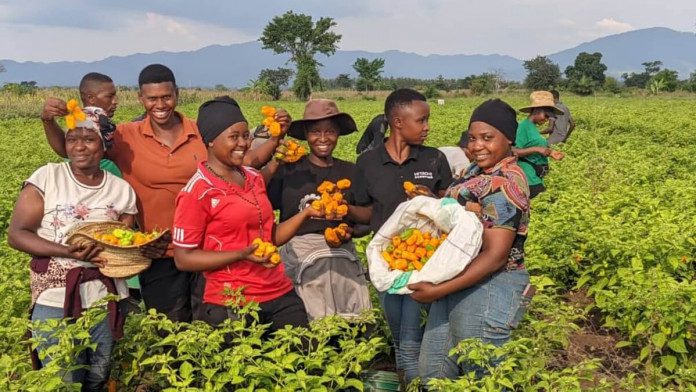News in Brief:
– Canada invest ($14.6 million) in a Tanzanian project aimed to empower women and youth in climate-smart agriculture.
– The six-year initiative will benefit 175,000 smallholder farmers, particularly women, to tackle climate change challenges and ensure food security.
The government of Canada has pledged its support for climate-resilient agriculture in Tanzania with a significant investment aimed at empowering women and youth.
The initiative, launched in Mkuranga District, injects a total of 20 million Canadian Dollars (approximately 38 billion Tanzanian shillings and $14.6 million) to tackle climate change challenges in the agricultural sector.
Specifically, the project, dubbed Her Resilience, Our Planet, is designed to equip women and youth with the knowledge and resources needed to adapt to climate change. It also aims to mitigate climate change effects, while transitioning to renewable energy sources.
This six-year initiative, coordinated by Care Tanzania, will collaborate with five other key partners, including WWF, SAGCOT, TGNP and others.
Reaching underserved farmers
The Canadian Minister of International Development, Ahmed Hussen, noted the project’s focus on reaching over 175,000 smallholder farmers, particularly women. He disclosed that this demographic are disproportionately affected by climate change’s impact on agriculture.

Therefore he stated that the project will equip them with the tools and knowledge to navigate these challenges and ensure food security.
Responding, Tanzania’s Deputy Minister of Agriculture, David Silinde, welcomed the Canadian grant. He highlighted the project’s alignment with Tanzania’s existing agricultural programs geared towards food security for Africa and beyond.
Additionally, he drew parallels between Her Resilience, Our Planet and the ongoing Building Better Tomorrow (BBT) initiative, which focuses on empowering graduates in the agricultural sector.
Meantime, the project will be implemented in the Southern Agricultural Growth Corridor of Tanzania (SAGCOT) clusters, whiuch encompasses districts like Iringa, Kilolo, Wanging’ombe, Mufindi, and Mbarali.
Importantly, these areas are strategically located within the Ruaha Basin, a key agricultural hub. Also, Care Tanzania, the project coordinator, say they bring a holistic approach to climate justice. Their aim is to integrate environmental sustainability, gender equality, and social inclusion into its work.
Additionally, their efforts focus on building community resilience, reducing vulnerabilities, and promoting adaptation strategies while advocating for human rights and addressing systemic inequalities.



